- europages
- >
- COMPANIES - SUPPLIERS - SERVICE PROVIDERS
- >
- austenitic stainless steel
Results for
Austenitic stainless steel - Import export

AMETEK SPECIALTY METAL PRODUCTS
United States
S20910 stainless steel provides a combination of good corrosion resistance and strength not found in any other commercial material available in its price range. This austenitic stainless steel has corrosion resistance greater than that provided by types 316 and 316L, plus approximately twice the yield strength at room temperature in the annealed condition. In addition S20910 stainless steel has very good mechanical properties at both elevated and sub-zero temperatures a well as outstanding cryogenic properties. And, unlike many austenitic stainless steels, 22-13-5 stainless steel can be heavily cold worked to enhance its yield strength and remain non-magnetic. Please note that we have a minimum order value of £10,000.
Request for a quote
AMETEK SPECIALTY METAL PRODUCTS
United States
Stainless steel powder 316L offers the highest degree of corrosion protection that is available in a standard P/M stainless steel grade. It provides very good strength at extremely high temperatures. AMETEK’s 316 grade stainless steel powder includes many fully customized powder specifications by varying lubricant type, content and particle size. We manufacture high quality 316L powders to fit your applications. 316L stainless steel powders are used in stainless steel flakes and are also used for paint additive manufacturing and chemical filtration. The 300 Series Powders are austenitic stainless steels typically used for powdered metallurgy (P/M) press and sinter applications to make near net shape parts for a variety of industrial applications.
Request for a quote
AMETEK SPECIALTY METAL PRODUCTS
United States
Stainless steel powder 304L is a corrosion resistant material that exhibits good property stability below 1000°F. 304L powder is often the most practical stainless steel choice for parts that need the benefit of an austenitic grade. 304 Stainless steel exhibits better overall corrosion resistance than 303 grade. This material is a good choice for parts that will not be subjected to demanding machining operations. A major benefit of this material is the balance of good material performance and economical cost. The 300 Series Powders are austenitic stainless steels typically used for powdered metallurgy (P/M) press and sinter applications to make near net shape parts for a variety of industrial applications.
Request for a quote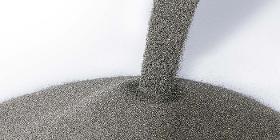
AMETEK SPECIALTY METAL PRODUCTS
United States
The 300 Series Powders are austenitic stainless steels typically used for powdered metallurgy (P/M) press and sinter applications to make near net shape parts for a variety of industrial applications. Stainless steel powder 303L is a free machining, austenitic grade that offers moderate corrosion resistance. This stainless steel is sintered in either a partial vacuum or a hydrogren atmosphere to improve ductility and corrosion resistance. 303 Stainless steel powder is a sulfurized grade that is an excellent option for parts that require secondary machining operations, such as food service equipment, pump components and nonmagnetic housings.
Request for a quote
AMETEK SPECIALTY METAL PRODUCTS
United States
SS 410 is a heat treatable martensitic chromium stainless steel. Melt practice is controlled to develop a surface nearly free from defects. It provides the best combination of wear resistance and corrosion resistance, and is used in demanding medical accessories. The alloy can be cold formed from the annealed temper. Welding should be accomplished by pre and post heating. Pre-heating at 450° F and post-heated at 1300°F will prevent cracking. The corrosion resistance is optimized in the heat-treated temper and assured by passivation. It is resistant to water and organic materials, making it a good material to use in applications such as, rotary dies. Oxidation resistance remains favorable in most applications up through 1200°F.
Request for a quote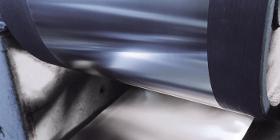
AMETEK SPECIALTY METAL PRODUCTS
United States
SS 316L is an austenitic Chromium-Nickel stainless steel with superior corrosion resistance. The low carbon content reduces susceptibility to carbide precipitation during welding. This permits usage in severe corrosive environments such as isolator diaphragms, and metal diaphragms, for both aerospace sensors and burst discs. The alloy can be formed from the annealed temper by stamping and deep drawing. Joining is accomplished by brazing and welding. The Molybdenum is the alloy composition provides excellent strength up through 800° F in applications. Available Sizes: SS 316L is available from Hamilton Precision Metals as strip product from 0.0005” to 0.050” (0.0127 mm to 1.27 mm) in widths up to 12.0” (304.8 mm). It is also available in foil as thin as 0.000200” (0.00508 mm) in widths of 4.0” (101.6 mm) maximum. The material conforms to AMS 5507, ASTM A240, FED QQS766 and UNS S31603.
Request for a quote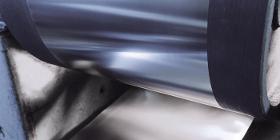
AMETEK SPECIALTY METAL PRODUCTS
United States
SS 305 is an austenitic Chromium-Nickel stainless steel with excellent corrosion resistance, and is suitable for very severe cold forming operations. A high nickel content reduces the work hardening rate so that it can be formed into electronic components and remain non-magnetic. The alloy is readily formable and work hardens slowly.It has good resistance to nitric and sulfuric acid solutions although it will not resist halogen acids. The alloy can be satisfactorily welded, brazed, and soldered. Available Sizes: SS 305 is available from Hamilton Precision Metals as strip product in thicknesses from 0.0005” to 0.050” (0.0127 mm to 1.27 mm) in widths up to 12.0” (304.8 mm). It is also available in foil as thin as 0.000200” (0.00508 mm) in widths of 4.0” (101.6 mm) maximum. The material conforms to ASTM A240, QQS-766, and UNS S30500.
Request for a quote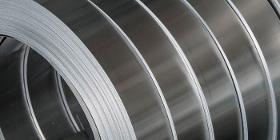
AMETEK SPECIALTY METAL PRODUCTS
United States
SS 304L is an austenitic Chromium-Nickel stainless steel offering the optimum combination of corrosion resistance, strength, and ductility. These attributes make it a favorite for many mechanical switch components, and use in surgical instruments. Low carbon content reduces susceptibility to carbide precipitation during welding. The alloy is readily formed in the annealed temper.SS 304L may be joined by all commonly used brazing and welding methods including oxyacetylene. The corrosive resistance to acids is generally very good with the exception of halogen acids. Available Sizes: SS 304L is available from Hamilton Precision Metals as strip product in thicknesses from 0.0005” to 0.050” (0.0127 mm to 1.27 mm) in widths up to 12.0” (304.8 mm). It is also available in foil as thin as 0.000200” (0.00508 mm) in widths of 4.0” (101.6 mm) maximum. The material conforms to ASTM A240, ASTM A666, FED QQ-S-766, MIL-S-4043, UNS S30403.
Request for a quote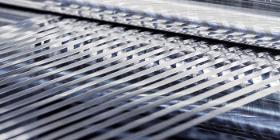
AMETEK SPECIALTY METAL PRODUCTS
United States
SS 302 is an austenitic Chromium-Nickel stainless steel offering the optimum combination of corrosion resistance, strength and ductility. These attributes make it a favorite for many mechanical switch components, as well as surgical instruments. The alloy is readily formed in the annealed temper. SS 302 may be joined by all commonly used brazing and welding methods including oxyacetylene. Caution should be used to avoid cooling slowly through the range of 900° to 1600°F where carbide network could form and reduce corrosion resistance. This characteristic is diminished due to the typically low carbon composition of Hamilton’s SS 302. The corrosive resistance to acids is generally very good with the exception of halogen acids.
Request for a quote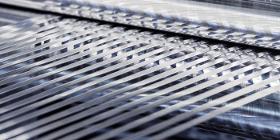
AMETEK SPECIALTY METAL PRODUCTS
United States
SS 301 is an austenitic Chromium-Nickel stainless steel capable of attaining high strength with moderate cold working. The combination of high strength and good ductility makes it suitable for numerous mechanical switches as well as surgical instruments, metal stampings and electronic and computer spring components.. The alloy is readily formed in the annealed temper. Ductility decreases with increased cold rolled strength but not to the degree that would occur with SS 302. It is not recommended for deep drawing. SS 301 can be welded by all conventional processed except oxy-acetylene. The weld should not make contact with electrolytes to prevent intergranular corrosion. SS 301 is resistant to atmospheric corrosion and is additionally resistant to mildly corrosive mediums. The combination of narrow strength bands and close thickness tolerance provided by Hamilton Precision Metals is the key to repeatable response characteristic in spring and switch applications.
Request for a quote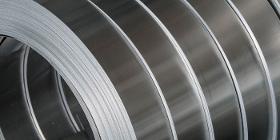
AMETEK SPECIALTY METAL PRODUCTS
United States
SS 304L HN is an austenitic Chromium-Nickel stainless steel offering the optimum combination of corrosion resistance, strength and ductility. This makes it good for use metal diaphragms, for both aerospace sensors and burst discs. It has been remelted by ESR refining and conditioned to produce a minimum non-metallic impurity level. This will result in a surface that is most favorable for minimizing failures during severe forming operations. The high Nickel composition provides optimum ductility and formability from the annealed temper due to low work hardening rate. The low carbon content reduces susceptibility to carbide precipitation during welding.
Request for a quote
AMETEK SPECIALTY METAL PRODUCTS
United States
The microstructures inside duplex stainless steels are approximately 50 per cent austenite and 50 per cent ferrite, and consequently duplex products share the physical properties of both ferritic and austenitic grades. Duplex stainless steels are resistant to the cracking caused by chloride stress corrosion in austenitic grades, and have improved resistance to localised corrosion. This family of stainless steels has roughly twice the yield strength of their counterpart austenitic grades . Higher hardness values provide better wear resistance for high precision tubes. Duplex stainless steel tubes have high hardness and wear resistance propertiesDuplex steels are easily welded and formed, similar to austenitic grades. Depending on chromium, nickel and molybdenum content, duplex stainless steels are divided into four main categories: lean duplex, duplex, super duplex and hyper duplex. Please note that we have a minimum order value of £10,000.
Request for a quote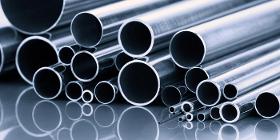
AMETEK SPECIALTY METAL PRODUCTS
United States
6 Mo (UNS S31254) is a super austenitic stainless steel with a high level of molybdenum and nitrogen, providing high resistance to pitting and crevice corrosion as well as high strength compared with conventional austenitic stainless steels such as 316L. The alloy can provide excellent resistance to stress corrosion cracking allowing tube cold formingand may be used without the necessity to re-anneal at testing up to 120°C. Please note that we have a minimum order value of £10,000.
Request for a quote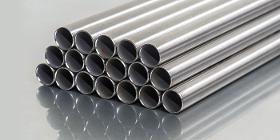
AMETEK SPECIALTY METAL PRODUCTS
United States
Grade 316 is the standard molybdenum-bearing grade, second in overall volume production to 304 amongst the austenitic stainless steels. The molybdenum gives 316 better overall corrosion resistant properties than Grade 304, particularly higher resistance to pitting and crevice corrosion in chloride environments. Grade 316L, the low carbon version of 316 and has very high immunity from sensitization (grain boundary carbide precipitation). It is extensively used in the oil and gas and chemical industries for its cost effective corrosion resistance and ease of fabrication. There is commonly no appreciable price difference between 316 and 316L stainless steel. The austenitic structure also gives these grades excellent toughness, even down to cryogenic temperatures. Compared to chromium-nickel austenitic stainless steels, 316L stainless steel offers higher creep, stress to rupture and tensile strength at elevated temperatures. Please note that we have a minimum order value of £10,000.
Request for a quote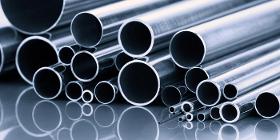
AMETEK SPECIALTY METAL PRODUCTS
United States
316LN (UNS S31653) is a low-carbon, nitrogen-enhanced version of Type 316 molybdenum-bearing austenitic stainless steel. The Type 316 alloys are more resistant to general corrosion and pitting/crevice corrosion than the conventional chromium-nickel austenitic stainless steels such as Type 304. They also offer higher creep, stress-rupture and tensile strength at elevated temperature. The nitrogen in Type 316LN adds additional resistance to sensitization in some circumstances. The nitrogen content of Type 316LN stainless steel also provides some solid solution hardening, raising its minimum specified yield strength compared to Type 316L stainless steel. Like Types 316 and 316L, the Type 316LN alloy also offers good resistance to general corrosion and pitting/crevice corrosion. Please note that we have a minimum order value of £10,000.
Request for a quote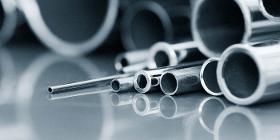
AMETEK SPECIALTY METAL PRODUCTS
United States
Grade 316 is the standard molybdenum-bearing grade, second inoverall volume production to 304 amongst the austenitic stainless steels. The molybdenum gives 316 better overall corrosion resistant properties than Grade 304, particularly higher resistance to pitting and crevice corrosion in chloride environments. Grade 316L, the low carbon version of 316 and has very high immunity from sensitization (grain boundary carbide precipitation). It is extensivly used in the oil and gas and chemical industries for its cost effective corrosion resistance and ease of fabrication. There is commonly no appreciable price difference between 316 and 316L stainless steel. The austenitic structure also gives these grades excellent toughness, even down to cryogenic temperatures. Compared to chromium-nickel austenitic stainless steels, 316L stainless steel offers higher creep, stress to rupture and tensile strength at elevated temperatures. Please note that we have a minimum order value of £10,000.
Request for a quote
AMETEK SPECIALTY METAL PRODUCTS
United States
Duplex UNS S31803/1.4462 is a duplex stainless steel with approximately 50% ferrite and 50% austenite. This grade has good mechanical strength at room temperature, resistant to corrosive attack, including pitting and is resistant to stress corrosion cracking. The grade is a successful alternative to the normal 300 series austenitic stainless steels, where its higher strength and resistance to stress corrosion cracking is required in critical applications. Please note that we have a minimum order value of £10,000.
Request for a quoteDo you sell or make similar products?
Sign up to europages and have your products listed

AMETEK SPECIALTY METAL PRODUCTS
United States
UNS NO8904, commonly known as 904L, is a low carbon high alloy austenitic stainless steel which is widely used in applications where the corrosion properties of AISI 316L and AISI 317L are not adequate. The addition of copper to this grade gives it corrosion resistant properties superior to the conventional chrome nickel stainless steels, in particular to sulphuric, phosphoric and acetic acids. However, there is limited use with hydrochloric acids. It also has a high resistance to pitting in chloride solutions, a high resistance to both crevice and stress corrosion cracking. Alloy 904L performs better than other austenitic stainless steels due to the higher alloying of nickel and molybdenum. The grade is non-magnetic in all conditions and has excellent formability and weldability. The austenitic structure also gives this grade excellent toughness, even down to cryogenic temperatures. Please note that we have a minimum order value of £10,000.
Request for a quote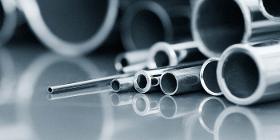
AMETEK SPECIALTY METAL PRODUCTS
United States
316Ti (UNS S31635) is a titanium stabilised version of 316 molybdenum-bearing austenitic stainless steel. The 316 alloys are more resistant to general corrosion and pitting/crevice corrosion than the conventional chromium-nickel austenitic stainless steels such as 304. They also offer higher creep, stress-rupture and tensile strength at elevated temperature. High carbon Alloy 316 stainless steel can be susceptible to sensitisation, the formation of grain boundary chromium carbides at temperatures between approximately 900 and 1500°F (425 to 815°C) which can result in intergranular corrosion. Resistance to sensitisation is achieved in Alloy 316Ti with titanium additions to stabilise the structure against chromium carbide precipitation, which is the source of sensitisation. This stabilisation is achieved by an intermediate temperature heat treatment, during which the titanium reacts with carbon to form titanium carbides. Please note that we have a minimum order value of £10,000.
Request for a quote
AMETEK SPECIALTY METAL PRODUCTS
United States
Fine Tubes manufactures a full range of thin wall tubing products for the fabrication of condenser tubes. Our condenser tubes are engineered specifically for the heating, cooling or reheating of fluids and gases in a range of sectors. Alloys Our tube mill has the flexibility to produce condenser tubes in seamless, welded and welded redrawn formats in the following grades of metal: Stainless steel (304L, 316L) Austenitic stainless steels (904L) Titanium alloy (Ti CP Grade 2) Nickel alloys (C276, C22, 600) Please note that we have a minimum order value of £10,000.
Request for a quote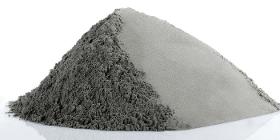
AMETEK SPECIALTY METAL PRODUCTS
United States
Since the 1980’s, we have been a leading producer of superfine powders for Metal Injection Molding (MIM). Our expertise and advanced atomization technology enable us to produce very fine MIM powders down to 10µm. Products and Sizes Our MIM water atomization technology is compatible with most conventional high-performance stainless steels and alloys. Special size distributions are available as well as some standard sizes. Grades: 17-4PH®, 70/30 Fe/Cr, 430L, 316L, other 300 Stainless Steel series Sizes: Typically smaller than 20µm Austenitic Stainless Steels 316L used in MIM applications which require good corrosion resistance, strength and ductility. Also available 304L and 310L. Ferritic Stainless Steels 430L ferritic stainless steel combines good magnetic response and some corrosion resistance. Also available 409L, 410L, and 434L.
Request for a quote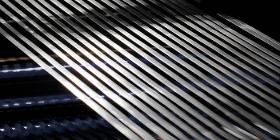
AMETEK SPECIALTY METAL PRODUCTS
United States
Precision C is a heat treatable Nickel-Iron Alloy used in critical diaphragm applications, such as, metal diaphragms for aerospace sensors and burst discs. The alloy composition provides a unique constant elastic modulus value over a temperature range of -50ºF to 150ºF. Precision C can be readily formed from the annealed temper. It has a work hardening rate similar to austenitic stainless steel. The material can be joined by TIG, EB, and resistance welding as well as by brazing and soft solder technique. The heat treatment of Precision C can be adjusted to produce the desired value for the thermoelastic coefficient at or near zero. The elevated strength in the heat treated temper results in low mechanical hysteresis and low drift. Available Sizes: Precision C is available from Hamilton Precision Metals as strip product in thickness from 0.0005” to 0.040” (0.0127 mm to 1.016 mm) and widths up to 8.0” (203.2 mm). The material conforms to ASM 5221 and UNS N09902.
Request for a quote
AMETEK SPECIALTY METAL PRODUCTS
United States
Superior Tube Co. supplies above industry standard quality high performance used in the manufacturing of liquid and gas chromatography. High Performance Liquid Chromatography High performance liquid chromatography (HPLC) is used to analyze chemicals in both research and industrial processing. It’s an application that requires precision tubing, which is resistant to high temperatures, pressures and corrosion. For many years, Superior Tube has supplied tubes made from corrosion resistant austenitic, stainless steel and nickel alloys for a range of HPLC equipment. The tubing is used for the manufacturing of the columns in chromatography machines. This application requires exceptional inside diameter condition and overall tube strength to withstand the pressure involved when pumping liquids or gases through the column in order to extract samples for chemical analysis. Please note that we have a minimum order value of £10,000.
Request for a quote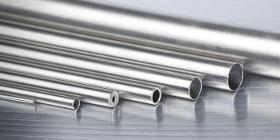
AMETEK SPECIALTY METAL PRODUCTS
United States
Because of its strength, unique density and corrosion resistance, titanium has found applications in many industries. For high quality tubing products, it’s often a better substance to use than competing materials like stainless steels or super alloys. Titanium tubes are light weight and exceptionally corrosion and heat resistantThe density of titanium is about 60 per cent of that of steel- or nickel-based alloys giving significant weight savings in aerospace structures. The tensile strength is better than that of austenitic or ferritic stainless steels. Titanium is exceptionally corrosion resistant and exceeds the resistance of stainless steels in most environments. The metal is non-magnetic too, and has good heat transfer properties, with a melting point higher than steel alloys. Titanium is easily worked. Please note that we have a minimum order value of £10,000.
Request for a quote
AMETEK SPECIALTY METAL PRODUCTS
United States
AMETEK Specialty Metal Products is committed to meeting the demands of Metal Additive Manufacturing (AM) for mass-production of industrial components. We engineer economic AM powder of mainstream stainless steel, nickel, and cobalt alloys for non-rotor-grade components made by Laser Powder Bed, Binder Jet, and Cold Spray processes. Alloys As a leader in metal powder production for additive manufacturing, we offer several different alloys and size distributions specifically tailored for different additive manufacturing processes and machines. The most common additive manufacturing powder materials produced include: 316L (including A240 grade) 304L 17-4PH® We also offer specialty austenitic and ferritic stainless steels, as well as a selection of nickel and cobalt alloy powders for 3D printing.
Request for a quote
AMETEK SPECIALTY METAL PRODUCTS
United States
347 (UNS S34700/1.4550) is a fully austenitic niobium stabilised stainless steel. The addition of Niobium reduces the creation of carbide precipitation in service between 430 to 900 degrees C and during welding processes and increases the mechanical strength of the material. This grade has good resistance to oxidation and corrosion along with good creep strength and can be used at temperatures where carbide precipitation may occur in non-stabilised grades e.g., 304. It is used principally in aerospace exhaust manifolds and engine components, chemical processing equipment running at high temperatures and in nuclear processing piping. Please note that we have a minimum order value of £10,000.
Request for a quote
AMETEK SPECIALTY METAL PRODUCTS
United States
Alloy 209 is a fully austenitic nitrogen strengthened stainless steel, having twice the yield strength and superior corrosion resistance at room temperature when compared to 316/316L or 317/317L stainless steels. This grade does not become magnetic when cooled to sub-zero temperatures or to a cold working process and has high resistance to sulphide stress corrosion cracking in both annealed and cold worked/ cold worked & aged form up to 30 HRc hardness. Please note that we have a minimum order value of £10,000.
Request for a quote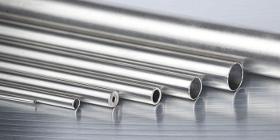
AMETEK SPECIALTY METAL PRODUCTS
United States
Superior Tube supplies high pressure tubes that exceed current industry standards and we supply high quality products that are used in oil and gas extraction, high pressure liquid chromatography, military applications, water jet cutting, and more. Our tube mill manufactures high pressure tubing in straight lengths, and in a variety of corrosion resistant austenitic, nickel alloys, and stainless steels. Sizes run from 0.050” right up to 1.250” outside diameter, with wall thicknesses between 0.0175” and 0.218”. Operating conditions can require our products to be service rated above 60,000psi operating pressure, with tensile strengths greater than 220ksi. Please note that we have a minimum order value of £10,000.
Request for a quoteResults for
Austenitic stainless steel - Import exportNumber of results
29 ProductsCountries
Company type